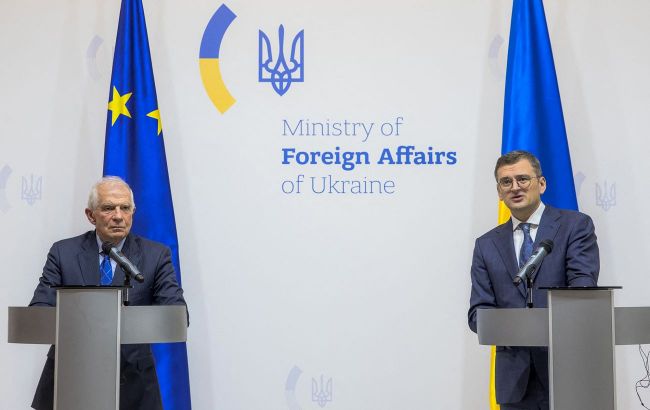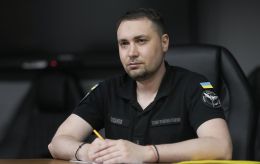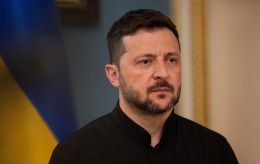Borrell announces progress on Russian assets issue, Kuleba calls for their confiscation
 Illustrative photo (Photo: Getty Images)
Illustrative photo (Photo: Getty Images)
Russia must pay for the destruction of Ukraine, and this can be done through the use of frozen Russian assets. A way to confiscate them must be found, according to the statements of the EU's chief diplomat, Josep Borrell, and the Minister of Foreign Affairs, Dmytro Kuleba, at a press conference in Kyiv.
"We are going step by step advancing in something that is full of logic. Russia has to pay for the destruction of Ukraine. Russia has to pay to rebuild Ukraine, and these frozen assets have to contribute to it. We have already agreed on identifying and keeping safe the revenues – the extraordinary revenues - that these assets have produced. And I am working hard in order to get an agreement to relocate these revenues to the European Union Budget and to be used to support Ukraine," says Borrell.
He also notes that it is currently necessary to determine the whereabouts of Russian assets and transfer them to the European Union budget, from where they would be directed to support Ukraine.
At the same time, Ukrainian Foreign Minister Dmytro Kuleba states that Ukraine's position on the issue of Russian assets remains unchanged.
"A legal mechanism must be found for the confiscation of the assets themselves. The aggressor must pay the full price," he says.
Confiscation of Russian assets
Recently, EU envoys reached an agreement on using the proceeds from frozen Russian assets to help Ukraine. It was also reported that diplomats allowed the transfer of income from Russian assets to a separate account.
At the end of 2023, the Western press reported that the United States proposed to the G7 countries to confiscate frozen Russian assets totaling $300 billion for the benefit of Ukraine. The initiative was intended to be approved by February 24, 2024.
Ukrainian Foreign Minister Dmytro Kuleba expressed confidence that the EU would decide on Russian assets this year.
Earlier, the Financial Times reported on Belgium's initiative. Brussels proposed a plan to the G7 countries that would allow the unlocking of frozen Russian assets in Europe.

